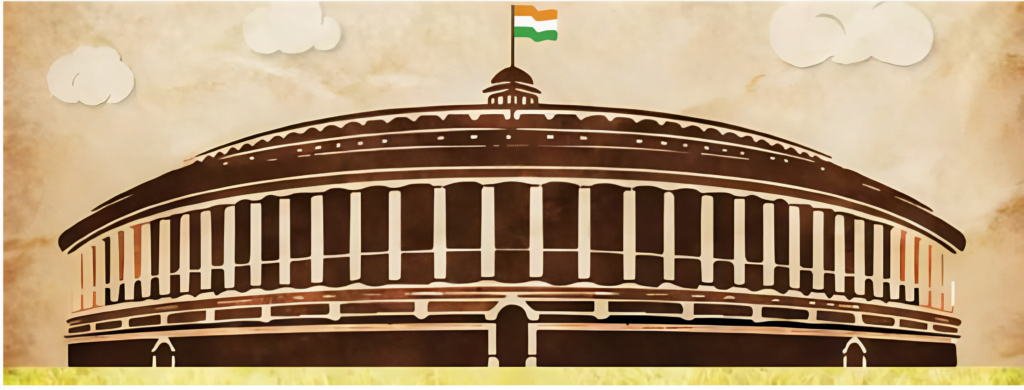Note. This article is published in FTCCI Review magazine dated 25 January 2023 which can be
read at the below link (Refer pg.no. 30 to 31):
The Finance Bill 2022 had proposed the amendment to the Customs Act, 1962 (Act) to address the issue of undervaluation in imports and provide for rules to be framed by the central government. The Centre has notified the Customs (Assistance in Value Declaration of Identified Imported Goods) Rules, 2023 [CAVR, 2023], aimed at addressing the undervaluation of specified imported goods which will come into effect from February 11, 2023.
The Ministry of Finance through the Central Board of Indirect Taxes and Customs (CBIC) has notified CAVR, 2023 to address the issue of undervalued imports, proposed in the Budget, which will be implemented with effect from February 11, 2023.
It may also be recalled that, as described in the explanatory memorandum with the Finance Bill 2022, the said amendment is a measure to address the issue of undervaluation in imports and it provides for rules to be framed by the Central Government whereby the Board can be enabled to specify the additional obligations of the importer in respect of a class of imported goods whose value is not being declared correctly, the criteria of selection of such goods, and the checks in respect of such goods.
The new Rules will identify a list of goods where there is reason to believe the value may not be declared truthfully or accurately and the importer would have to undertake additional obligations in this regard. can specify such goods, which would be examined by a “screening committee” and later by an “evaluation committee”.
Procedure to initiate obligations under CAVR, 2023:
The first step to initiate obligations under CAVR, 2023 is to identify the identified goods under Rule 5 of CAVR, 2023, where in respect of any class of imported goods or a subset thereof, the CBIC, having regard to the trend of the declared value of such goods or any other relevant criteria, has reason to believe that such goods may not be declared at their truthful or accurate value but below it.
The CAVR, 2023 can be applied only by following the processes referred in the rules. The written reference must have been made to the CBIC by any person including officer of Customs, namely a Commissioner or Additional Director General, or a person representing any other Government Department, which, if found suitable by screening committee for detailed examination, must have been comprehensively examined by evaluation committee which should have concluded the likelihood that the value of the relevant class of goods may not be declared truthfully. Thereafter, the Screening Committee’s recommendation confirming the completeness of such report must have been made to the CBIC. If satisfied that the recommended report should be accepted, the CBIC may specify the identified goods.
It is the expectation that report of the Evaluation Committee under rule 8 of CAVR, 2023 must be clear, distinct, unambiguous and free of deficiencies. A report, if it concludes the need to proceed further, should be amenable to implementation, inter alia, using the Customs Automated System, as brought out in the CAVR, Rules, 2023.
Obligations of import of identified goods:
The import of identified goods obliged to do following:
- Declare certain aspects described therein while filing the bill of entry:
- The value of goods using the Unique Quantity Code (UQC) specified in the Order
- The technical or other specifications necessary to be declared
- Where required by the Customs Automated System, such importer shall also have to fulfil the specified additional obligations, and the assessment of goods or the goods themselves shall be subjected to specified checks so as to enable and assist the importer to demonstrate the truthfulness and accuracy of the declared value.
- The proper officer may, in addition to the specified obligations and for reasons to be recorded in writing, ask for further information and documents from the importer to examine the truthfulness and accuracy of the declared value.
- On the request of the importer, the proper officer may provisionally assess and clear the goods, subject to importer furnishing appropriate security in terms of section 18 of the Act.
- Where the importer does not provide requisite information and documents or does not fulfil other obligations in the time specified under these rules, or where on the basis of the information and documents received from the importer or results of other checks exercised, the proper officer still has reasonable doubt about the truth or accuracy of the value declared in relation to the identified goods, the further proceedings shall be taken in accordance with rule 12 of the Customs Valuation (Determination of Value of Imported Goods) Rules, 2007 (CVR, 2007).
It is essential that for the above purposes the Customs Automated System is in readiness to mandate declaration of quantity in the specified UQC, additional specifications etc. in the bill of entry on an immediate basis. This responsibility shall be discharged by the Director General of Systems and Data Management.
Exclusions from CAVR, 2023:
These rules shall not be applied to:
- Imports not involving duty;
- Goods for which tariff value has been fixed by the Board in terms of sub-section (2) of section 14 of the Act;
- Goods which attract import duty on specific rate basis;
- Imports made in terms of authorization or license issued under duty exemption scheme of the Foreign Trade (Development and Regulation) Act, 1992 (22 of 1992) in which the inputs imported prior to export are physically contained in the export product;
- Imports where buyer and seller are related and an investigation on relationship has already been contemplated or finalized;
- Project imports;
- Imports by Government, Public Sector Undertakings;
- Imports made in non-commercial quantities;
- Goods imported for the purpose of re-export; or
- Imports specified by the Board.
Accordingly, the provisions of CAVR, 2023 seek to assist the importer in demonstrating the truthfulness or accuracy of the declared value of identified goods, and the proper officer in the assessment function, however, these rules do not, in themselves, provide a method for determination of value. This essence of the rules, laying emphasis on following the CVR, 2007 must be noted and complied. It includes, when required, the passing of a proper speaking order for rejection and re-determination of value. Exclusion of categories where no commercial quantities are involved, project imports, etc will help prevent unnecessary hassles to genuine importers.

About the Author – VINEET SUMAN DARDA [FCA, ACS, CMA (I)], Co-Founder and Managing Partner, Darda Advisors LLP
Vineet Suman Darda is an experienced management professional with qualifications of FCA, ACS, CMA (I) and have experiences of 17+ years working in Big 4s (EY, Deloitte, KPMG) and own consulting firm on various tax and regulatory matters in leadership role. He has conducted sessions on various tax and regulatory topics at Business Parks, Business Associations and other forums (ASCI, FTCCI, JICA, KOTRA, EPC, ICAI, ICFAI, JITO, RGA and others)


